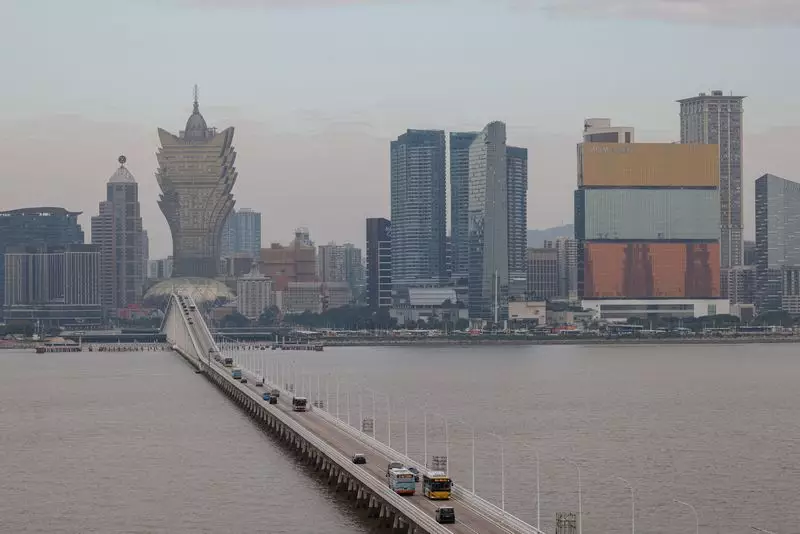Macau, renowned as the world’s leading gambling destination, has experienced notable growth in its casino revenues, with a 23.9% increase in 2024, hinting at a rebound from the pandemic’s devastating impact. The Gaming Inspection and Coordination Bureau reported that the total gaming revenue reached 226.8 billion patacas ($28.35 billion), surpassing the government’s projection but still falling short of the pre-pandemic milestone set in 2019, when revenues were recorded at 292.5 billion patacas. Despite this promising increase, the statistics reveal a concerning trend—December was the only month to witness a year-on-year decline in revenue, a stark reminder of the ongoing vulnerabilities within the gambling sector.
The contraction in revenues during December was particularly notable, aligning closely with a high-profile visit from Chinese President Xi Jinping. His three-day stay was marked by heightened security and a symbolic marker of the 25th anniversary of Macau’s return to Chinese sovereignty in 1999. During his visit, Xi emphasized the critical need for Macau to diversify its economic portfolio. The central government’s push for diversification is not merely a reaction to the pandemic’s effects but also a strategic move to ensure that Macau remains relevant and resilient in an increasingly competitive global landscape.
Xi Jinping’s call for Macau to embrace new industries and better integrate with national development objectives reflects a growing awareness of the shortcomings inherent in a casino-reliant economy. With approximately 80% of the region’s tax revenue stemming from gambling, the dependency on this singular industry poses risks—especially in light of China’s ongoing anti-corruption campaign, which has significantly curtailed high-stakes gambling from the VIP sector. To thrive, Macau must evolve beyond its identity as a gambling hub by fostering alternative sectors and creating a balanced economy that can withstand both local and international pressures.
The concept of enhancing economic connectivity within the Greater Bay Area—a vibrant region comprising major cities like Hong Kong and Guangzhou—could offer Macau significant opportunities for growth. Xi’s suggestion for deeper cooperation with Portuguese-speaking nations and participation in initiatives such as the Belt and Road Initiative underpins the potential for Macau to position itself as a vital player in a broader economic strategy that transcends traditional gambling activities. In pursuing this new direction, Macau could not only enhance its global standing but also attract a diversified stream of international visitors and investors.
While the surge in gaming revenue illustrates a recovery trajectory for Macau, it concurrently exposes the critical necessity for economic diversification. As Macau grapples with the realities of its gambling-centric economy, the proactive measures outlined by political leaders become increasingly essential. By embracing innovative industries and fostering regional cooperation, Macau can work towards a sustainable and robust economy that mitigates dependence on its casinos, ensuring that it remains a vibrant and resilient player on the global stage.

